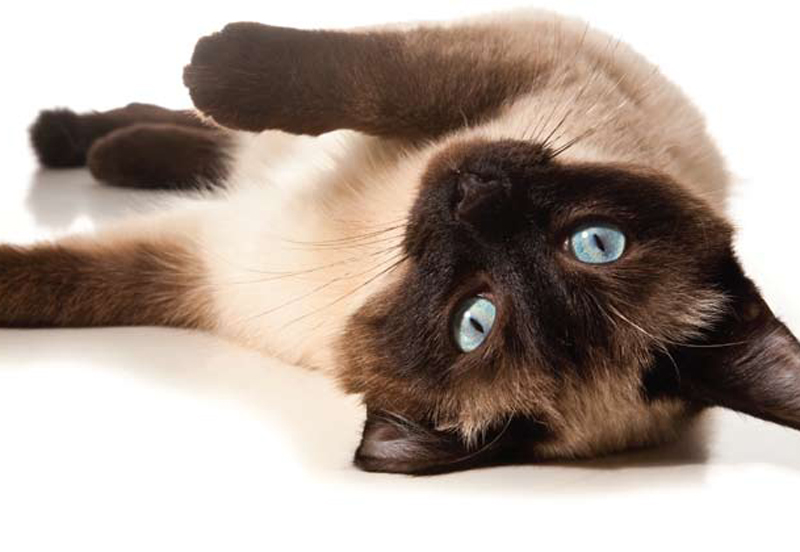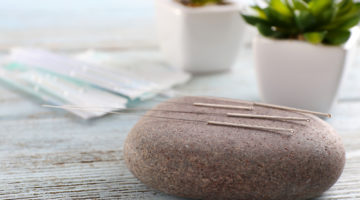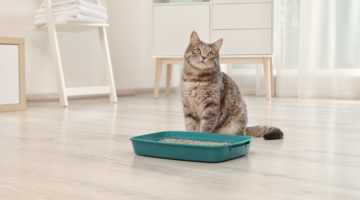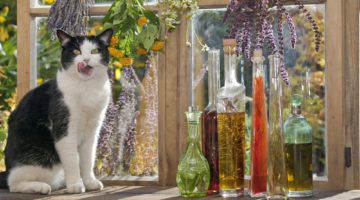Getting your kitten off to a good start in life helps ensure he’ll mature into a happy, healthy cat. A holistic approach is the key.
It was love at first sight when the small bundle of white fluff in Sue’s lap gazed up at her with big blue eyes. The eight-week-old kitten seemed to know he was in the arms of his forever “mom”.
Sue was committed to providing the best care for her new friend. She didn’t want to feed him foods full of by-products and preservatives. She wanted him to thrive on a natural, meat-based diet. She knew he would
require some vaccines, but was concerned about over-vaccinating and wanted to take a more holistic approach to his health. She wanted to make sure he was happy and mentally stimulated.
Get him eating healthy
Kittens have specific nutritional requirements that promote proper development and growth. They need foods high in energy and protein, yet lower in fats and carbohydrates. All felines are obligate carnivores and need a meat-based diet. A kitten fed a premium diet free of meat by-products, additives, preservatives, and with minimal to no grains, is off to a great start.
Exercise and play are essential for a kitten’s emotional, mental and physical stimulation.
Veterinarian Dr. Mark Newkirk suggests rotating meat proteins to see if a kitten does better eating turkey versus lamb or chicken versus beef. “Individualize your kitten and see how he does and what he likes,” he advises. “What are his bowels like? How is his coat?”
Dr. Newkirk says it’s best not to free-feed your kitten. Measured amounts of food fed at established mealtimes lessen the potential for weight gain. “We see a lot of fat cats – don’t leave food down all day. The kitten will not starve between breakfast and dinner. Set mealtimes will also alert you much faster if your cat is not eating well.”
Veterinarian Dr. Cindy Kneebone adds that it’s best to feed kittens a variety of foods and to avoid low quality dry food. Kittens can also be fed fresh meat and fish that’s lightly cooked, and they do well with fats that come from egg yolk and fish oils. According to Dr. Kneebone, mixing a variety of probiotic strains into the food helps improve the kitten’s gut biofilm. This prevents leaky gut and stops the invasion or adherence of pathogens to the gut lining – an important consideration in a young kitten whose immunity is just developing.
Although home-prepared diets are an option, Dr. Kneebone cautions that kittens require specific nutrients they can’t physiologically create in their own bodies. “It’s important to consult a veterinarian knowledgeable in feline nutrition to help formulate the diet,” she advises.
Taking care with vaccines
Young kittens obtain immunities from their mothers through colostrum (first milk). When these immunities fade, the kitten is then at risk for disease and needs to be vaccinated. However, determining just when to vaccinate a kitten can be difficult. Dr. Kneebone explains that vaccinating a kitten with high maternal antibodies will interfere with his ability to respond to the vaccine. She recommends using probiotics to help improve immunity.
Kittens usually only need four core vaccines – feline panleukopenia virus (FPV), feline calicivirus (FCV), feline herpesvirus-1 (FHV-1) and rabies (required by law) – although there is no “one size fits all” regime. Each kitten should be assessed individually in order to determine what his vaccine requirements should be. “If I have a kitten whose home is a high rise apartment on the beach and who will never leave the apartment, his core vaccines might just be for the respiratory viruses and rabies,” says Dr. Newkirk.
Mixing a variety of probiotic strains into the food helps improve the kitten’s gut biofilm.
Maintaining well being
- Exercise and play are essential for a kitten’s emotional, mental and physical stimulation. Just 15 minutes of interactive play a day with your kitten promotes his overall health and strengthens the bond between you. Play hide and seek with natural treats. Have him chase paper balls and feathers. Dr. Newkirk suggests training your kitten to walk on a harness and leash, and to provide multi-level posts or stairs for additional exercise. A sedentary kitten will become an obese cat; Dr. Newkirk warns that obesity leads to diabetes, heart disease and arthritis.
- Regular check-ups are a must, especially for the first four to six months.
- Many kittens eat litter, which means a clumping or clay-based litter can be dangerous. A kitten that ingests clumping litter may develop a life-threatening intestinal blockage. There are many natural and biodegradable litters available. Wheat, corn, pine or recycled newspaper are non-clumping and lower in dust.
- Brush your kitten’s coat daily. Even shorthaired breeds benefit from daily brushing as it optimizes coat and skin health. Your kitten will love the feel of the brush, and grooming him is another great way to enhance your mutual bond.
Thanks to her commitment to a optimal lifestyle, Sue is making sure her new companion will grow up to be healthy, happy and well-balanced. You can do the same for your kitten by embracing a well-rounded, holistic lifestyle!







No Comment